Speeches Shim
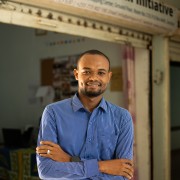
As Project Officer for the independent, non-partisan, youth led, non-governmental organization, Pamoja Youth Initiative, Rashid applied to participate in Feed the Future Tanzania Advancing Youth’s leadership program in 2018. He was one of 50 trainees in the program that brings together youth to a three-day training on negotiation, problem solving and community mobilization skills that enable them to influence decisions and/or become key decision makers in their communities.
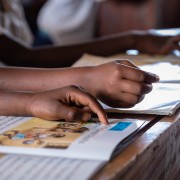
Christa Mrope is a Community Education Mobilizer at Kising'a Isimani Primary School in Iringa region. She regularly listens to the Soma Nami (“Read With Me”) radio program, a radio show organized by the USAID Tusome Pamoja (“Let's Read Together”) activity. Through Soma Nami, Christa and other parents in Kising’a village have learned techniques to improve reading and home learning support, promoting reading and literacy skills of their children and protecting children at home and in school. The Soma Nami radio program airs twice a week through two community radio stations in Tanzania’s Iringa region: Radio Furaha and Nuru FM.
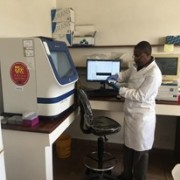
Well-functioning laboratories with trained staff are the backbone of Tanzania's public health systems. They are critical to the prevention, diagnosis, treatment, and ongoing surveillance of malaria. The US President’s Malaria Initiative has been supporting the development of laboratory expertise in detection and monitoring of antimalarial drug resistance markers in Tanzania since 2016. This work started by building the capacity of two National Institute for Medical Research Tanga Centre (NIMR Tanga) staff by the US Centers for Disease Control and Prevention (CDC) on molecular analyses of therapeutic efficacy study (TES) samples in 2016. It was followed by further training in 2017 and 2019 in which CDC trained three NIMR Tanga staff members.
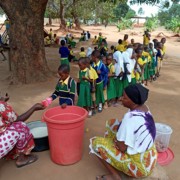
Before implementation of USAID’s Tusome Pamoja (“Let’s Read Together”) activity, the overall academic performance of first and second grade students at Ndelenyuma Primary School in Tanzania’s southern Ruvuma region was not good. Student absenteeism was low, affecting the entire school during national examinations. Pupils’ attendance was especially poor for those who lived far away from the school. After lunch break, many students would not come back to school for the afternoon session, or sometimes would come late.
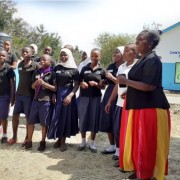
Improved sanitation and access to water is critical in the prevention of hygiene-related diseases like diarrhea, urinary tract infections, and cholera. In collaboration with Ministry of Health, Community Development, Gender, Elderly and Children (MoHCDGEC), Local Government Authorities, schools and communities, the United States Agency for International Development’s (USAID) Water Resources Integration Development Initiative (WARIDI) has implemented district wide sanitation and hygiene activities focused on Behavior Change Communication and monitoring sanitation progress in 14 Local Government Authorities. As of September 2020, a nearly 1.3 million people have gained access to basic sanitation services as a result of this support.

Comment
Make a general inquiry or suggest an improvement.